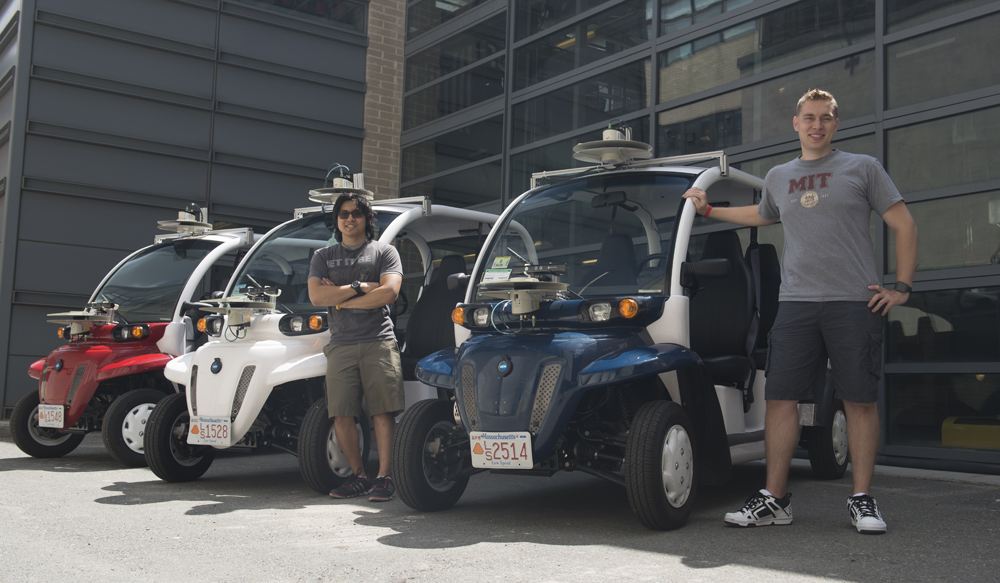The intersection of technology and mobility has led to groundbreaking innovations that are reshaping our transportation landscape. One such transformative initiative is the collaboration between Ford and the Massachusetts Institute of Technology (MIT), aiming to deliver on-demand electric shuttle services for students. This project transcends mere convenience; it’s an ambitious endeavor to understand and optimize how we move in urban environments, all while keeping sustainability and efficiency at the forefront.
Bridging the Gap: On-Demand Electric Shuttles
Imagine a scenario where you, as a student at MIT, can seamlessly hail an electric shuttle to take you from one class to another, or even to a nearby city. Thanks to the Ford and MIT initiative, this is not just a future fantasy. Utilizing a smartphone application, students can quickly request one of the shuttles that operate both on campus and city roads. The significant aspect of this project lies in its data-driven approach, tapping into advanced technologies such as LiDAR sensors, weather data, and class schedules to enhance frequency and efficiency.
Understanding Pedestrian Traffic Through Data
In an era where data has become the new oil, this partnership aims to gather crucial insights into pedestrian traffic patterns. By employing a combination of LiDAR technology and real-time analytics, Ford seeks to grasp how students move around the bustling campus. This understanding is not only pivotal for improving the dynamic shuttle service but also for the larger ambition of Ford’s Smart Mobility initiative, which aims to explore innovative transportation solutions.
Optimizing Services with Adaptive Algorithms
The project goes beyond simply shuttling students; it is an opportunity to refine and adapt operational strategies through continuous learning. Data from the shuttle services feed back into a centralized system where algorithms analyze trip patterns in real-time. This allows for:
- Demand Prediction: Understanding peak times and patterns, ensuring that shuttles are available when they are needed most.
- Route Optimization: Implementing the most efficient routes for pick-ups and drop-offs to save time and resources.
- Adaptive Positioning: Smart algorithms continually suggest optimal positioning of shuttles throughout the campus for maximum accessibility.
Such adaptability is crucial for ensuring that student transportation remains reliable and efficient—no matter the circumstances.
Advantages of Lower Resolution LiDAR Systems
The collaboration also looks into the viability of using lower resolution LiDAR systems for safer autonomous vehicle functionalities. Bryan Goodman from Ford explains that the current phase of research gathers valuable insights to potentially enhance detection algorithms without being reliant on high-resolution systems. Some key advantages include:
- Lower production costs, making self-driving technology more accessible.
- Reducing dependence on additional sensors or cameras, which can complicate the vehicle design.
Ultimately, the findings from this project may influence the design and deployment of fully autonomous zoned transportation systems—filling sprawling urban campuses like MIT with safe and efficient mobility solutions.
The Future of Transportation at MIT and Beyond
As the project approaches its conclusion at the end of the year, discussions are already underway about future phases—most notably the introduction of fully autonomous electric shuttles. The comprehensive data and insights gained thus far will lay the groundwork for this next leap toward autonomous mobility.
Conclusion: A Model for Urban Mobility Innovation
The Ford and MIT electric shuttle project epitomizes the future of sustainable and efficient urban transportation. By intertwining advanced technology with a data-centric approach, it serves as a model not just for campuses, but for cities worldwide grappling with traffic and environmental concerns. As this initiative develops, the potential to reshape our urban travel landscape seems brighter than ever.
At fxis.ai, we believe that such advancements are crucial for the future of AI, as they enable more comprehensive and effective solutions. Our team is continually exploring new methodologies to push the envelope in artificial intelligence, ensuring that our clients benefit from the latest technological innovations.
For more insights, updates, or to collaborate on AI development projects, stay connected with fxis.ai.

